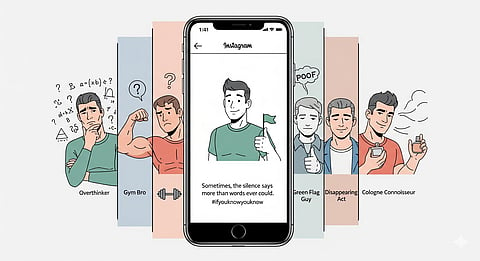1. The Gym Bro
Fuelled by protein shakes and motivational podcasts, this man thrives on discipline—but sometimes mistakes physical strength for emotional resilience. Underneath the biceps, psychologists might identify high conscientiousness but low openness, making him driven yet rigid.
2. The Overthinker
He’s careful, calculated, and sometimes paralysed by analysis. Drafting messages in Notes isn’t just quirky—it’s the mark of someone high in neuroticism and thoughtfulness. He values control over outcomes but often struggles with spontaneity.
3. The Cologne Connoisseur
Impeccably scented, questionably hygienic. This type thrives on external validation and appearances. He may score high on extraversion and agreeableness but lag in the “follow-through” department—especially when it comes to laundry.
4. The Disappearing Act
One day, he’s sending you playlists, the next he’s a ghost. This man embodies avoidant tendencies—psychologists link it to attachment styles formed early in life. Independence is his badge, but commitment feels like quicksand.


